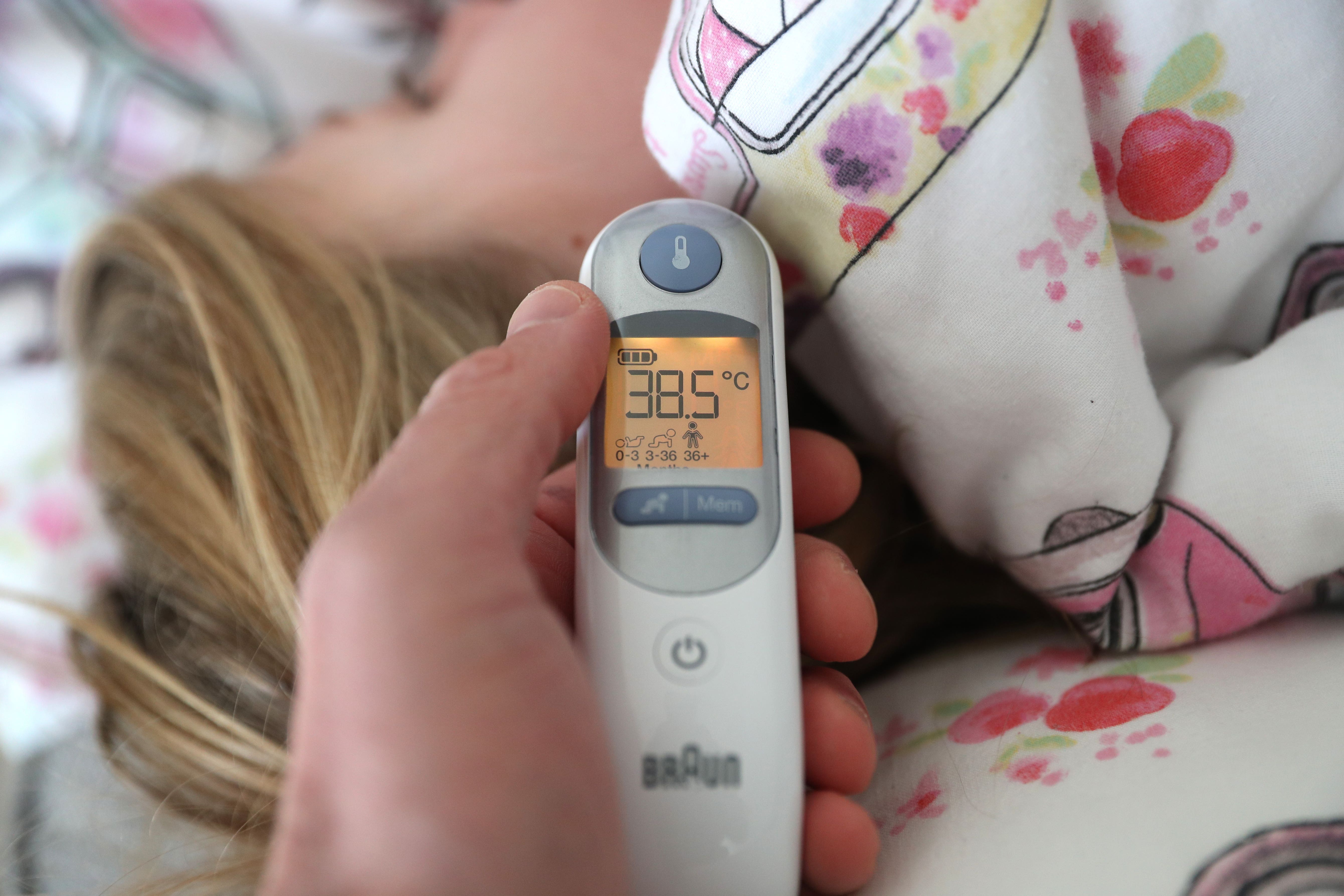Strep A: Pharmacists forced to pay £11 for course of antibiotics
Pharmacy representatives have repeatedly warned that they cannot fill all antibiotic prescriptions.

Your support helps us to tell the story
From reproductive rights to climate change to Big Tech, The Independent is on the ground when the story is developing. Whether it's investigating the financials of Elon Musk's pro-Trump PAC or producing our latest documentary, 'The A Word', which shines a light on the American women fighting for reproductive rights, we know how important it is to parse out the facts from the messaging.
At such a critical moment in US history, we need reporters on the ground. Your donation allows us to keep sending journalists to speak to both sides of the story.
The Independent is trusted by Americans across the entire political spectrum. And unlike many other quality news outlets, we choose not to lock Americans out of our reporting and analysis with paywalls. We believe quality journalism should be available to everyone, paid for by those who can afford it.
Your support makes all the difference.Some pharmacists are being forced to pay £11 for a course of antibiotics after a spike in demand, in part caused by Strep A infections, a senior pharmacist has said.
Reena Barai, community pharmacist contractor and board member of the National Pharmacy Association, said staff “are very frustrated” by a shortage of drugs and were being forced to pay inflated prices for antibiotics, which normally cost £2.
It comes after Health Secretary Steve Barclay said last week that the Department of Health was not aware of any shortages of antibiotics, though he suggested stock could be moved around if GPs were struggling.
Pharmacy representatives have repeatedly warned that they cannot fill all the antibiotic prescriptions coming their way.
A total of 16 children across the UK have now died from invasive Strep A infection and there has been a huge jump in cases of scarlet fever.
Ms Barai told Sky News “there has been a spike in demand for antibiotics including those used to treat strep pain”.
She added: “What we saw last week was a very frustrating week for us in community pharmacy, where we were seeing lots of prescriptions coming through for antibiotics.
“Most of us had some stock to kind of complete those prescriptions, but towards the end of the week, we came to a situation that we were struggling to order any antibiotics in and all our wholesalers were telling us they’re out of stock.
Sometimes it feels like I've become an NHS charity shop, propping up and subsidising the NHS drugs bill
“Yet there was mixed messaging coming from the Government to say that there was stock available and, finally on Saturday, we did get a delivery of a small quantity of antibiotics, particularly the liquid form that’s used for children and some of the very vital penicillin that is used to treat strep infections.
“But I literally got two boxes. That was my quota. That’s all I was allowed for the delivery on Saturday.”
She said “antibiotics are now at the top of our priority in terms of the drug shortages”, adding: “In particular, with the antibiotics, the pressure is on us because we’ve got parents who are coming in are very worried – we’ve got very poorly children who need these antibiotics.
“We spent a lot of our time last week firefighting, supporting GPs to write prescriptions for products that we did have in stock, supporting parents to make sure they get access quickly to antibiotics, and it’s been a very, very difficult week for community pharmacies.
“Towards the end of the week, what started to happen, is we were able to potentially order some antibiotics in, but the price has suddenly risen.
“So for example, on Thursday, I saw that penicillin tablets were available and normally I pay around £2 for them and suddenly the screen was showing that they’re £11.
“I was in a dilemma – do I buy this or not? And my team said to me, ‘Reena, what should we do? Should we buy these?’ and I said, ‘I’m not having a child or adult go without antibiotics, we’re buying them’.
Unfortunately we're at the bottom of a very large supply chain that's above us, and as that last entity in that supply chain, we are getting the brunt of this
“And we’re going to dispense them in good faith that the Government will reimburse us for that price that we’re paying, which is obviously £9 more than the current price that we’re reimbursed for.
“This is a situation that all my colleagues across the country are facing…unfortunately we’re at the bottom of a very large supply chain that’s above us, and as that last entity in that supply chain, we are getting the brunt of this.
“I think antibiotics is now the straw that’s going to break the camel’s back. The complete system of the supply chain is broken.”
She said that “sometimes it feels like I’ve become an NHS charity shop, propping up and subsidising the NHS drugs bill.”
Ms Barai added it was not clear who was setting inflated prices on medicines, saying: “We want to know the answer to that question. Every time we ask that question, we don’t get a correct answer…”
A Department of Health and Social Care spokesman said: “There is no supplier shortage of antibiotics available to treat Strep A. We sometimes have surges for products and increased demand means some pharmacies are having difficulties obtaining certain antibiotics.
“We rely on competition to drive down the prices of generic medicines which generally results in lower prices for the NHS – this means prices can fluctuate, but no company should use this as an opportunity to exploit the NHS.
“Where companies are found to be abusing their dominant position by charging excessive and unfair prices, the Competition and Markets Authority (CMA) can take action against businesses and individuals engaged in anti-competitive conduct.”